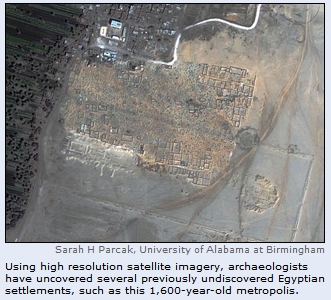There is trouble in the land of the Egyptologists. The history of Ancient Egypt remains a fascinating topic for a large number of people. The significance of Egypt as a partner and antagonist for the nation of Israel is undeniable. But academia at large, and Egyptologists in particular have been reluctant to admit what has become increasingly obvious over the past 20 years – the accepted chronology of Egypt must be drastically revised. The chronology of Israel, by contrast, has a high degree of confidence among scholars. It appears that the Ancient Egyptians have succeeded for a century or more in hoodwinking the rest of the world by exaggerating the antiquity of their dynasties. Velikovsky pointed out many of the problems in the 1950s and 1960s, but was dismissed (unfairly) as a crank. In the 1990’s, David Rohl and Peter James offered new evidence documenting the dating problems and offering several new revised timelines that would better fit the data. We sold Rohl’s Pharaohs and Kings through Greenleaf when it came out. I wish it were still in print.
 There’s a new book that picks up the argument, reinforces and advances the investigation and presents an update to the proposed “new chronology” of Egypt. The book is Unwrapping the Pharaohs by John Ashton and David Down. This is an exciting time for Egyptologists! The field is wide open and ripe for new discoveries, new analysis, and new ideas. The crux of the Ashton-Down book is a revision of the Egyptian timeline and an exploration of the new synchronicities which occur. The text is beautifully illustrated with lots of new color photographs, taking full advantage of the recent discoveries in Egypt made during the last 20 years. Also included with the book is a DVD with 86 minutes of foot filmed on location in Egypt. On pages 205-210 of the book is the payoff – a proposed detailed revised chronology which eliminates the First Intermediate Period and drastically shortens the Third Intermediate Period. This makes Hatshetsup a contemporary of Solomon (and possible the Queen of the South?) and Rameses II (Rameses the Great) a contemporary of Jeroboam II. Ashton-Down agree with Rohl in asserting the the Plagues of the Exodus (especially the destruction of Pharaoh’s army in the crossing of the Red Sea) are the reason for the astonishing conquest of Egypt by the Hykos c. 1440 BC. For all those who are interested in Egypt, and especially those looking for evidence that confirms the biblical account and reconciles Egyptian history with the biblical dates, I highly recommend this book.
There’s a new book that picks up the argument, reinforces and advances the investigation and presents an update to the proposed “new chronology” of Egypt. The book is Unwrapping the Pharaohs by John Ashton and David Down. This is an exciting time for Egyptologists! The field is wide open and ripe for new discoveries, new analysis, and new ideas. The crux of the Ashton-Down book is a revision of the Egyptian timeline and an exploration of the new synchronicities which occur. The text is beautifully illustrated with lots of new color photographs, taking full advantage of the recent discoveries in Egypt made during the last 20 years. Also included with the book is a DVD with 86 minutes of foot filmed on location in Egypt. On pages 205-210 of the book is the payoff – a proposed detailed revised chronology which eliminates the First Intermediate Period and drastically shortens the Third Intermediate Period. This makes Hatshetsup a contemporary of Solomon (and possible the Queen of the South?) and Rameses II (Rameses the Great) a contemporary of Jeroboam II. Ashton-Down agree with Rohl in asserting the the Plagues of the Exodus (especially the destruction of Pharaoh’s army in the crossing of the Red Sea) are the reason for the astonishing conquest of Egypt by the Hykos c. 1440 BC. For all those who are interested in Egypt, and especially those looking for evidence that confirms the biblical account and reconciles Egyptian history with the biblical dates, I highly recommend this book.
 A second book on Egypt, also high recommended, is Imagining Egypt by Mark Millmore. The book combines stunning color photography of Egyptian monuments with computer graphic recreations of what the Egyptian temples and villas would have looked like in ancient times. In addition, the book includes a wonderful chapter with a detailed explanation of the system of symbols used in hieroglyphic inscriptions. In addition to the computer graphic recreations of ancient monuments, the book also includes current photographs, original diagrams, maps, and timelines. A fascinating book that helps us to imagine what Egypt looked like at the height of its glory.
A second book on Egypt, also high recommended, is Imagining Egypt by Mark Millmore. The book combines stunning color photography of Egyptian monuments with computer graphic recreations of what the Egyptian temples and villas would have looked like in ancient times. In addition, the book includes a wonderful chapter with a detailed explanation of the system of symbols used in hieroglyphic inscriptions. In addition to the computer graphic recreations of ancient monuments, the book also includes current photographs, original diagrams, maps, and timelines. A fascinating book that helps us to imagine what Egypt looked like at the height of its glory.
-Rob Shearer,
Director, Schaeffer Study Center
Publisher, Greenleaf Press
